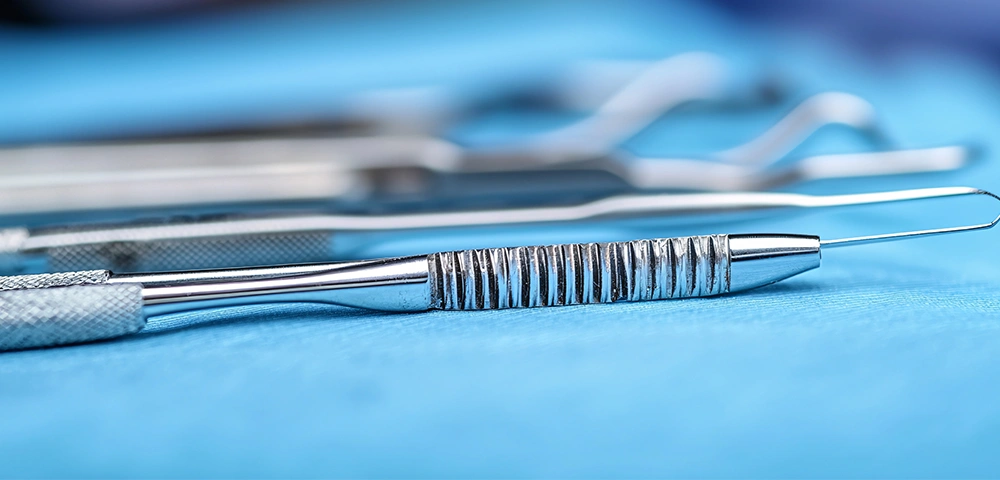Compassionate Care for Uterine Fibroids
Expert fibroid treatment to relieve symptoms, improve fertility, and enhance your quality of life.
What Are Uterine Fibroids?
Uterine fibroids are non-cancerous growths that develop in or around the uterus. Also known as leiomyomas or myomas, they are composed of muscle and fibrous tissue and vary in size, from as small as a seed to as large as a grapefruit. While fibroids are common and often harmless, they can sometimes cause discomfort, heavy menstrual bleeding, pain, or fertility issues, thus making fibroids treatment non-negotiable in some cases. The cause of fibroids is not entirely understood, but factors like hormonal imbalances, genetics, and lifestyle influences can contribute to their development.
How Do Fibroids Affect Fertility?
When it comes to fertility, fibroids can interfere with conception and pregnancy in multiple ways. Depending on their location, they may distort the uterine cavity, obstruct the fallopian tubes, or alter blood flow to the uterus, making it difficult for an embryo to implant successfully. Women who experience difficulty conceiving or recurrent miscarriages may find that fibroids are a contributing factor. In such cases, medical intervention may be necessary to improve their chances of a successful pregnancy.
Fibroid Treatment Options
At Bud IVF, we provide a range of advanced treatment options for fibroids, tailored to each woman’s unique condition and reproductive goals. The choice of treatment depends on factors such as the size, location, and severity of the fibroids, as well as whether a woman wishes to conceive in the future.

Medication-Based Management
Hormonal medications, such as birth control pills or GnRH agonists, can help regulate menstrual bleeding and shrink fibroids. However, these treatments offer temporary relief and do not eliminate fibroids entirely.

For women looking for effective yet less invasive treatments, the following procedures can help:
Hysteroscopic Myomectomy – Removes fibroids inside the uterine cavity without major incisions.
Laparoscopic Myomectomy – Uses small incisions to remove fibroids while preserving the uterus.
Uterine Fibroid Embolization (UFE) – Blocks blood supply to fibroids, causing them to shrink.

Myomectomy – A surgery that removes fibroids while keeping the uterus intact, ideal for women who wish to conceive in the future.
Hysterectomy – The complete removal of the uterus, recommended for women with severe symptoms who do not plan to have children.
Recovery time after fibroid treatment varies depending on the procedure performed. Minimally invasive procedures often allow for a faster recovery, with most patients resuming normal activities within a few days. For more extensive surgeries like myomectomy or hysterectomy, recovery can take several weeks. Our team provides comprehensive post-treatment care to ensure a smooth recovery, including pain management, lifestyle recommendations, and follow-up consultations.
FAQs
Can fibroids come back after treatment?
Yes, fibroids can recur after treatment, particularly if only certain fibroids were removed. Regular check-ups and lifestyle modifications can help manage recurrence risks.
Does fibroid treatment affect fertility?
It depends on the type of treatment. Procedures like myomectomy preserve fertility, while a hysterectomy permanently eliminates the possibility of pregnancy. Our specialists can guide you on the best approach based on your family planning goals.
What is the best treatment for fibroids if I want to get pregnant?
Myomectomy is the preferred option for women who wish to conceive, as it removes fibroids while preserving the uterus. Minimally invasive options may also be considered depending on the size and location of the fibroids.
Are fibroid treatments painful?
Minimally invasive procedures have a shorter recovery time and cause minimal discomfort. More extensive surgeries may involve some pain, but effective pain management strategies will be provided.
Can lifestyle changes help shrink fibroids?
While lifestyle changes alone may not eliminate fibroids, maintaining a healthy diet, managing stress, and regular exercise can help regulate hormones and reduce the risk of fibroid growth.
